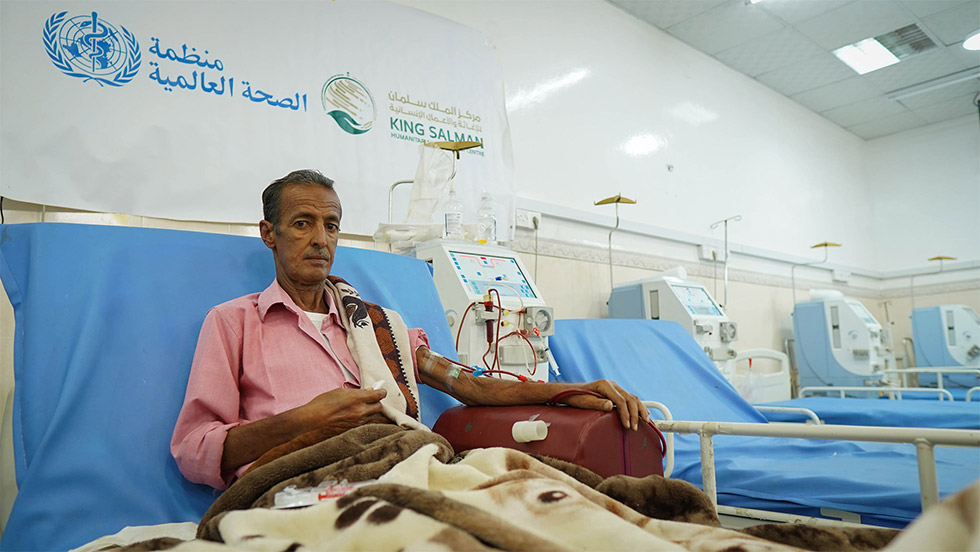 Sameer, 60-years-old, receives dialysis treatment at Al-Sadaqa hospital in Aden
Sameer, 60-years-old, receives dialysis treatment at Al-Sadaqa hospital in Aden
30 June 2020 – Esam is only 16 years old and he battles colon cancer. Esam receives treatment at the national oncology centre in Sana’a governorate, supported by WHO.
“I am hopeful. I’m looking forward to a time when I am feeling better so I can lead a normal life like my friends,” he says.
Patients who suffer from chronic diseases lead a challenging life. The additional burden of not being able to access or afford treatment is unimaginable. An estimated 35 000 cancer patients (10% of them children) and more than 1 million people who suffer from noncommunicable diseases (NCDs) are in need of humanitarian aid.
Sameer is 60 years old. He receives dialysis treatment at Al Sadaqa hospital in Aden. “Being a dialysis patient during this time in Yemen is agonizing. It is crucial that this support continues so we continue to have access to the sessions our lives depend on,” he says.
WHO and KSrelief are procuring up to US$ 24 million worth in supplies to cover the life-saving treatment needs of patients living with chronic life-threatening conditions such as cancer, kidney failure and NCDs, including diabetes. Up to 110 340 dialysis sessions were delivered to 5500 patients at risk of kidney failure between October 2019 and May 2020. This generous support from KSrelief contributed to up to 50% of the total costs of the dialysis sessions among all 21 centres available in the country.
Patients with chronic, life-threatening diseases need access to treatment
If over 5 years of war, ongoing armed conflict and being the worst humanitarian crisis in the world is not enough, Yemen’s humanitarian situation continues to worsen now that COVID-19 is posing additional pressure on the health system. Yemen’s already collapsing infrastructure may face complete obliteration if aid is not provided. The lives of 19.7 million people in need of health care will be at risk. Many of these people are vulnerable communities who are either displaced, disadvantaged, suffering from chronic illnesses, malnourished or all the above.
WHO and partners are aware of the severity of needs in the country and are sparing no effort to support the health system from further deterioration to save the lives of people in need of health care.
Currently, WHO and KSrelief are supporting 189 hospitals across the country. That is 75% of the 252 operational hospitals in Yemen. Up to 4.34 million people will have access to health services through this support. This includes the provision of the Minimum Service Package at the primary and secondary level by supplying medicines and medical equipment and fuel.








